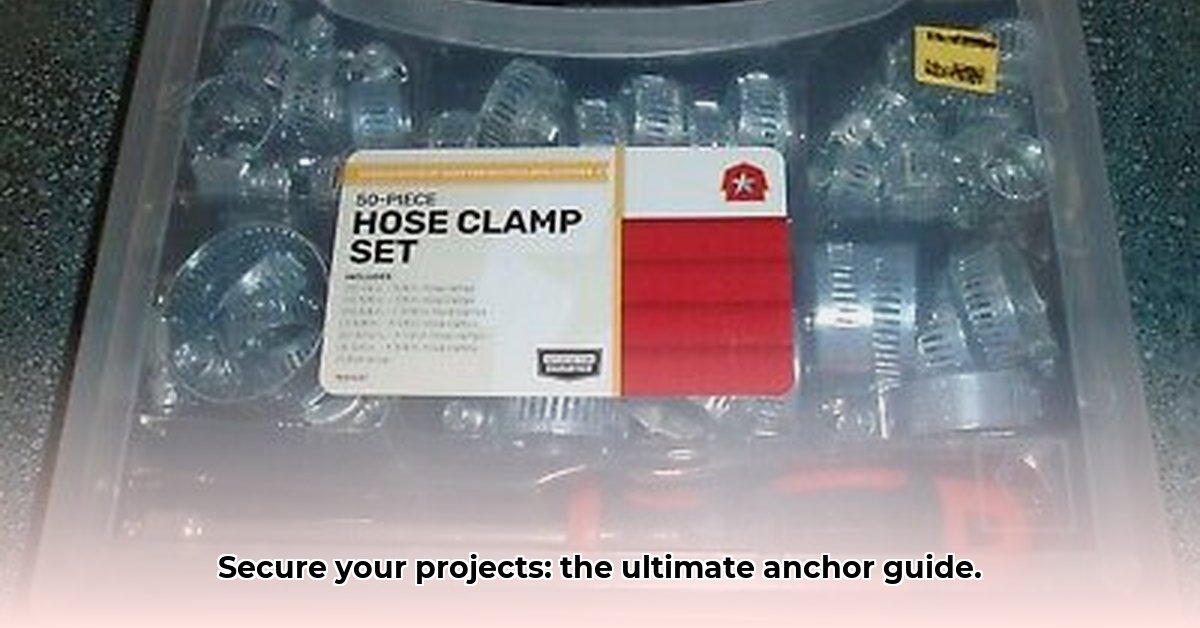
Choosing the Right Tractor Supply Anchor for Your Needs
Planning a project that requires securing something firmly into the ground? Tractor Supply Company offers a wide variety of anchors, each designed for different purposes and soil conditions. Understanding your project's needs is the first step to choosing the right anchor. What are you anchoring? How heavy is it? What type of soil are you working with? For additional securing options, check out Tractor Supply Hitch Locks.
Types of Tractor Supply Anchors
Tractor Supply stocks a range of anchors, each with its own strengths and weaknesses. Common types include:
Heavy-duty Steel Anchors: (Galvanized steel anchors) These are typically the strongest and most durable option, ideal for anchoring heavy items like fences, sheds, or equipment. Their galvanized coating provides excellent rust resistance. Do you need an anchor that can withstand significant weight and the elements? Heavy duty steel is a top contender.
Concrete Anchors: These anchors are best suited for projects in solid ground or where you can pour a concrete base. They offer exceptional stability when properly installed. Are you working with firm, stable ground? Concrete anchors will make a strong and lasting foundation.
Screw-in Anchors: These are easier to install, but generally have lower weight capacities and are better suited for lighter items or ground stakes. Looking for a quick and straightforward solution for less demanding applications? Screw-in anchors could be what you need.
Factors to Consider When Choosing an Anchor
Beyond the anchor's material and construction, several factors influence your choice:
Weight Capacity: Always select an anchor with a weight capacity exceeding the weight of the object you're securing. Underestimating this can lead to failure and potential damage. What is the combined weight of your structure and any anticipated loads?
Soil Type: Sandy soil requires a much deeper anchor than clay soil to achieve equivalent stability. For sandy soil, deeper anchors with larger diameters are ideal. How would you characterize the soil where you plan to install the anchor? (clay, sand, loam, etc.)
Depth of Installation: A deeper anchor provides significantly greater stability, especially in loose soil. Think of tree roots: a deep anchor is like a deep root system – it provides maximum stability. Are you prepared to dig sufficiently deep for proper anchor placement – for this, deep is better?
Installing Tractor Supply Anchors: A Step-by-Step Guide
Correct installation is critical for anchor performance and safety. Follow these steps for optimal results:
Preparation: Mark the exact location of the anchor and dig a hole of the appropriate depth and diameter using a post hole digger or auger. Ensure the hole is deep enough to accommodate the entire anchor, allowing additional space for backfilling.
Placement: Carefully lower the anchor into the hole, ensuring it remains perfectly vertical to prevent uneven settling. Double-check your alignment before proceeding.
Backfilling: Firmly pack the soil around the anchor, eliminating any air pockets with a tamper or your foot. This provides optimal soil-to-anchor contact, maximizing holding power. A tightly compacted foundation is essential for a secure hold.
Testing: After the soil has settled (allow a few hours or overnight), gently tug on the object attached to the anchor to assess its stability. You don't want any wobbles!
Where to Buy and Safety Considerations
Tractor Supply Co. is an excellent source for a wide selection of anchors. It's recommended to confirm weight capacities and installation instructions before starting your project and always prioritize safety. Wear work gloves, safety glasses, and sturdy footwear. If using power tools, understand and follow all safety guidelines. For large or heavy projects, consider working with a partner.
Anchor Comparison Table
| Anchor Type | Material | Weight Capacity (lbs) | Soil Type | Installation Difficulty |
|---|---|---|---|---|
| Heavy-duty Steel | Galvanized Steel | 500+ | All | Moderate |
| Concrete Anchor | Concrete | 200-500 | Firm, compacted | Moderate |
| Screw-in Anchor | Steel | 50-150 | Most | Easy |
Remember, selecting and installing the right anchor is vital for a sturdy, long-lasting project. Don't rush the process; choosing and installing correctly pays off!